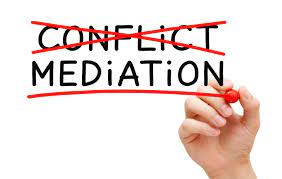Mediation, as an alternative method of resolving conflict situations, directs and focuses the participants in the dispute on finding options for solving the problem that became the basis of the conflict. This method of conflict resolution separates the person from the subject of the dispute and provides an opportunity to find common interests, discuss them comprehensively and jointly find a solution that will satisfy both parties. Participants in mediation negotiations have an equal right to express their attitude to the problem, point of view, bring up for discussion the topics that interest them the most, outline their interests and ways of resolving the dispute.
The role of the mediator, as a moderator of the mediation process, is that the negotiations between the participants should be structured, constructive and aimed at finding a solution to the dispute, which the participants independently produce, that fully satisfies them. The mediator in the negotiation process is neutral, i.e. directed at finding a solution that fully meets the interests of the participants and satisfies their needs. The mediator does not make a decision and does not appoint the guilty party, but contributes to the solution of the problem that created the conflict situation.
The mediation process is voluntary, confidential, equal and flexible.
It starts only with the consent of all participants in the disputed situation, who have the authority to make decisions. In the case of an appeal to the mediator that before the mediation meeting is held by one of the participants in the conflict, the mediator conducts negotiations with the other participant about his participation in the joint mediation meeting, finds out the time and place of the meeting that is convenient for both participants.


 Вирішення спорів Україна, Київ
Вирішення спорів Україна, Київ






